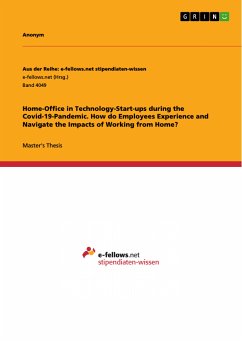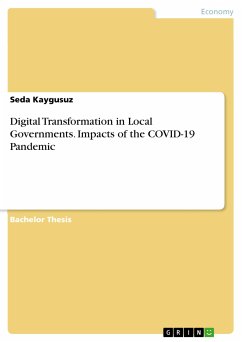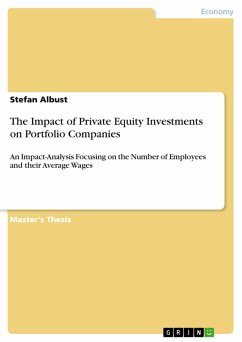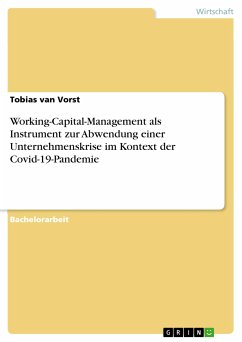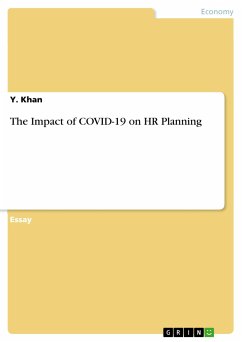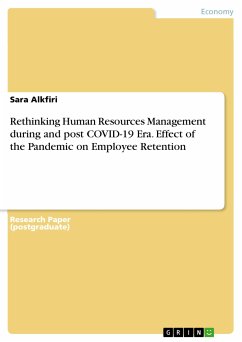Master's Thesis from the year 2021 in the subject Leadership and Human Resources - Miscellaneous, grade: Distinction, London School of Economics, language: English, abstract: This studys purpose is to understand how technology-start-up employees in the start-up hubs London and Berlin perceive the impacts of homeworking and what strategies they apply to navigate emerged challenges associated with losing co-location with colleagues. A social identity perspective is adopted to explore how employees perceive the dynamic homeworking experience, highlighting the interrelation between effects on individual and collective instances. A total of 18 qualitative interviews were conducted and analysed using thematic analysis. The results show that the experience of harmonising work and private life under one roof can be a critical balancing act and impacts the usual experience of working in a start-up, characterised by close social interactions and organisational identification. Consequently, impacts on social processes essential for the survival of start-ups were found to follow the loss of co-location. The sudden shift to homeworking by companies worldwide due to the COVID-19 pandemic, sparks intense research in organisational psychology on employee consequences. While literature focuses on firms with sufficient resources to initiate navigational strategies, firms with limited resources are often neglected. Combined with the likelihood that pre-existing homeworking trends will accelerate, it is valuable to examine the perceptions of employees in technology-start-ups which have limited resources to succeed, and whose success is driven by members' expertise through close and frequent interactions.
Dieser Download kann aus rechtlichen Gründen nur mit Rechnungsadresse in A, B, BG, CY, CZ, D, DK, EW, E, FIN, F, GR, HR, H, IRL, I, LT, L, LR, M, NL, PL, P, R, S, SLO, SK ausgeliefert werden.

